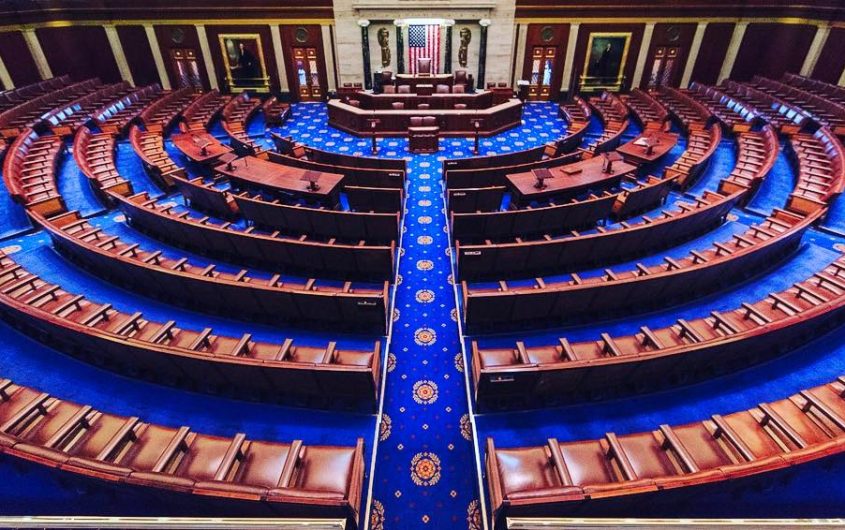
On Capitol Hill, Transatlantic Trade Returns to Its Roots

Peter S. Rashish
Vice President; Director, Geoeconomics Program
Peter S. Rashish, who counts over 30 years of experience counseling corporations, think tanks, foundations, and international organizations on transatlantic trade and economic strategy, is Vice President and Director of the Geoeconomics Program at AICGS. He also writes The Wider Atlantic blog.
Mr. Rashish has served as Vice President for Europe and Eurasia at the U.S. Chamber of Commerce, where he spearheaded the Chamber’s advocacy ahead of the launch of the Transatlantic Trade and Investment Partnership. Previously, Mr. Rashish was a Senior Advisor for Europe at McLarty Associates, Executive Vice President of the European Institute, and a staff member and consultant at the International Energy Agency, the World Bank, UN Trade and Development, the Atlantic Council, the Bertelsmann Foundation, and the German Marshall Fund.
Mr. Rashish has testified before the House Financial Services Subcommittee on International Monetary Policy and Trade and the House Foreign Affairs Subcommittee on Europe and Eurasia and has advised three U.S. presidential campaigns. He has been a featured speaker at the Munich Security Conference, the Aspen Ideas Festival, and the European Forum Alpbach and is a member of the Board of Directors of the Jean Monnet Institute in Paris and a Senior Advisor to the European Policy Centre in Brussels. His commentaries have been published in The New York Times, the Financial Times, The Wall Street Journal, Foreign Policy, and The National Interest, and he has appeared on PBS, CNBC, CNN, NPR, and the BBC.
He earned a BA from Harvard College and an MPhil in international relations from Oxford University. He speaks French, German, Italian, and Spanish.
Once, when I was trying to explain to a German acquaintance the personalities and geography of U.S. trade politics, I casually mentioned that despite skepticism toward trade among many Democrats, Richard Neal of Massachusetts was the co-chair of the House TTIP caucus, the bipartisan congressional group supporting the Transatlantic Trade and Investment Partnership negotiations that took up most of the second term of the Obama administration. “Of course,” he said, and then asked rhetorically, “how could anyone from New England be against trade with Europe? That’s how it grew rich!”
A fair point: whether it is clipper ships trading textiles in the nineteenth century or pharmaceutical companies exchanging goods and knowhow in the twenty-first, Massachusetts and its neighbors have indeed become prosperous through economic engagement with Europe.
Congressman Neal, who represents a district in western Massachusetts that encompasses the Berkshire mountains and the city of Springfield, will now take over as chairman of the House Ways and Means Committee, which is responsible for trade policy. And although a lot has changed over the last thirty or forty years of the globalization of the U.S. economy, today Europe still represents almost a quarter of Massachusetts’ foreign trade. Germany is the state’s number five trading partner overall.
Not only that. The trade policy activism of the George W. Bush and Barack Obama administrations has been good to the state: over the last ten years, exports from Massachusetts to countries that have signed free trade agreements with the U.S. have grown by a healthy 27 percent. And those exports represent of almost a third of the state’s total.
So don’t be surprised if Neal uses the power of the gavel to convene hearings on the importance of transatlantic economic relations to U.S. prosperity and job creation. That could give a needed boost to the ongoing U.S.-EU trade talks that President Trump and European Commission President Juncker launched at the end of the July, which are under pressure to produce early results.
While the Ways and Means Committee will have at its helm an authentic friend of Europe, it has lost a strong ally with the departure of Erik Paulsen, Republican of Minnesota, who served as co-chair of the TTIP Caucus along with Congressman Neal. Neal represents a safe Democratic seat, but Paulsen hails from the kind of suburban swing district that saw several Democratic takeovers on November 6. Across the country, a number of GOP House members from the traditional pro-trade wing of the party went down to defeat in these districts populated by moderate voters. By and large the Democrats who replaced them ran campaigns that did not focus on trade policy, and their centrist approach may nudge the party to somewhat more pragmatic, trade-friendly positions.
Europe, however, is unlikely to be the central focus for trade policy on Capitol Hill. That honor will go to the ratification of the new U.S.-Mexico-Canada Agreement (USMCA) to replace NAFTA. Unless, that is, the White House decides to place 25 percent national security tariffs on European automobile exports. If so, that will be an early test of whether Democrats are willing to join with President Trump in sacrificing long-term U.S. prosperity for short-term political gains.








